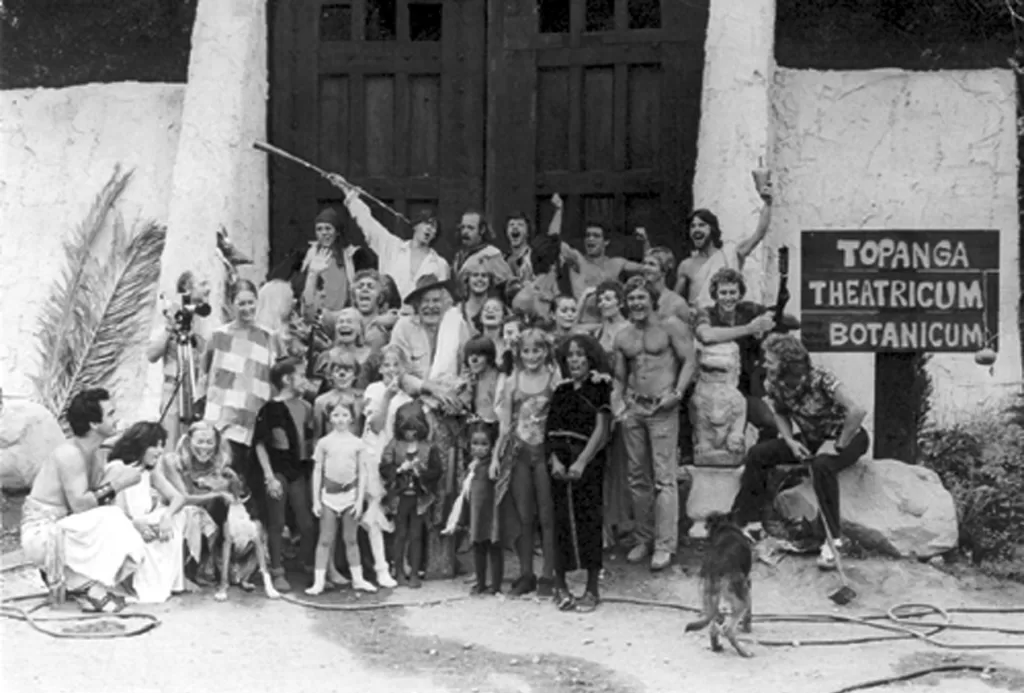
One of Topanga Canyon’s most beloved arts institutions is celebrating its 50th anniversary this year, and so in this month’s Lost Canyons LA column we are celebrating the fascinating history of the Theatricum Botanicum and the extraordinary life of its founder Will Geer, whose personal story led him from actor to activist and from blacklisted outcast to the much-loved impresario of Topanga.
Will Geer was born in Frankfort, Indiana in 1902. As a child, he was fascinated with nature. His grandfather shared with him a love of botany and taught the young Geer the botanical names of all the plants near their home. After finishing high school, Geer attended the University of Chicago, where his love for nature led him to obtain a master’s degree in botany. While at college, Geer also discovered a love for acting and often performed in theatrical productions on campus, igniting a passion that would dictate his career from then on.
After moving to New York City to pursue acting, Geer performed in a production of Uncle Tom’s Cabin at the Triangle Theatre in Greenwich Village in 1924, before moving on to an array of stage roles both on and off Broadway. In 1928 he performed alongside famed actress Minnie Maddern Fiske, whose support for labor unions had an influence on a young Geer’s own developing views.
Arriving in Los Angeles in 1932, Geer began to find work in the then booming Hollywood film industry, including roles in Misleading Lady in 1932 and Spitfire in 1934. With the Great Depression raging, Geer was moved by the plight of migrant workers and others struggling to make ends meet and became more involved in supporting labor unions and leftwing politicians, including the activist writer Upton Sinclair in his campaign for governor of California in 1934. In 1938 Geer married actress Herta Ware, the daughter of labor organizer Ella Reeve Bloor, and the couple started a family that would soon include three children.
In 1939 Geer met Woody Guthrie who, over the coming decades, would become one of his closest friends. The two men were introduced by their mutual friend Ed Robbin, who at the time was the Los Angeles bureau chief for the leftist People’s World newspaper. That same year, Geer and Guthrie would both star (alongside their pregnant wives) in the documentary Fight for Life about a lack of obstetric care for poor women. They also traveled together to perform for farm workers.
Geer shared recollections of that time in the book The Life, Music, and Thought of Woody Guthrie by John S. Partington. He is quoted says, “That was the summer that Woody Guthrie and our Folksay troupe of four took off for the lettuce fields of Brawley, the date orchards of Indio and the grape yards of Arvin and Wee Patch. We played in the migratory camps, sang ballads and did sketches.”
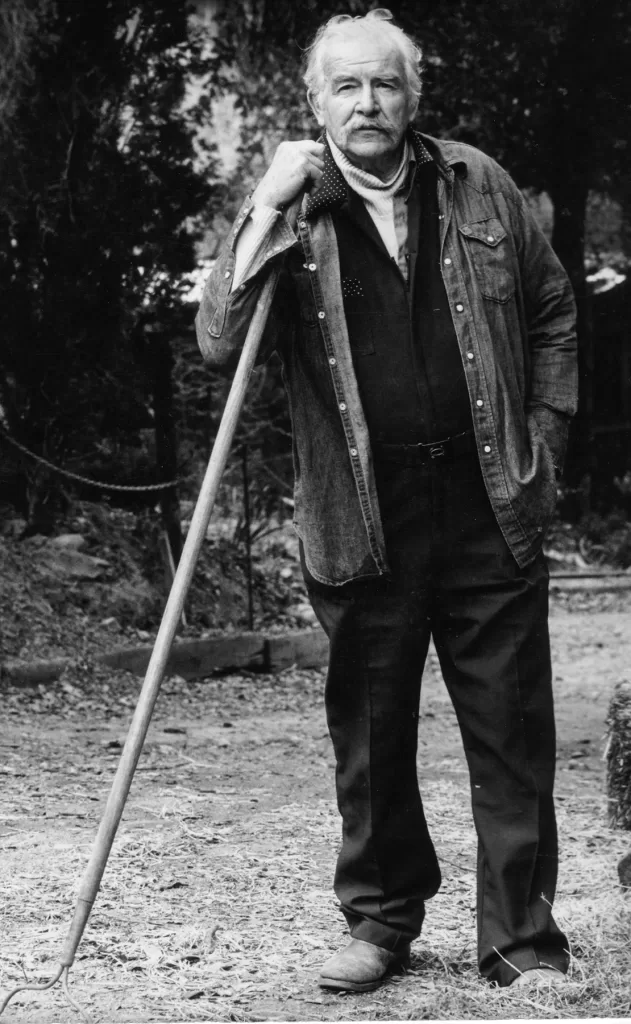
The two men went on to work together on the John Steinbeck Committee to Aid Agricultural Workers in California. Guthrie also performed alongside Lead Belly, Burl Ives and Pete Seeger, at the “Grapes of Wrath” benefit concert that Geer organized in 1940 in aid of the Steinbeck Committee.
During the 1940s, Geer continued to build a successful acting career alongside his political activism before achieving greater recognition in a trio of standout performances in American Western films Winchester ’73, Broken Arrow, and Comanche Territory all in 1950. However, Geer’s run of good luck in Hollywood came to an abrupt halt when his political activism caught the attention of Senator Joseph McCarthy’s House Un-American Activities Committee, and he was ordered to testify in Washington D.C. in 1951. Refusing to answer many of the committee’s questions about his political affiliations, Geer was swiftly blacklisted by the film industry.
With his career now in retreat, Geer sold his Santa Monica home and moved his young family to a more remote property in Topanga Canyon. In a recent interview with Topanga New Times, Geer’s daughter, Ellen Geer, the longtime artistic director of the Theatricum Botanticum, said being put on the blacklist took her father’s “legs right from under” him. “My mother was smart enough to know that Pop needed to be around the Earth,” Geer said. “So that’s when we bought the house, right after being in court in Washington D.C. And we all used that time to figure out how to become formidable performers and figure out how to survive.”
In their new Topanga home Geer immersed himself in his lifelong love of botany by creating a market garden to grow fruits, vegetables, and herbs that the family could sell to help make ends meet. He also created a beautiful garden where he cultivated every plant mentioned in Shakespeare’s plays.
Meanwhile Guthrie, who was now struggling with the effects of Huntington’s Disease, decided to leave his home in New York City and move to the Geers’ new Topanga property in 1952. In The Life, Music, and Thought of Woody Guthrie, Guthrie is quoted on his time working alongside Geer in his garden, saying of his friend, “He’s the only man I know that knows the vegetables by their maiden names. When he shouts, the vegetables come a-running and jump in the stewpot.” Guthrie stayed in a one-room stone hut, located about a hundred yards from the family’s main house. During this time the Geers began to create a thriving community of artists, folk musicians and fellow blacklisted actors often hosting music nights and plays throughout the 1950s as a part of what they called their Folksay Theater.
By the 1960s, the stigma of the McCarthy era and the blacklist were beginning to fade in the collective memory of Hollywood and Geer’s career began to grow again after he was cast in Advise and Consent, Otto Preminger’s 1961 political drama that challenged the rules of the blacklist by casting Geer and fellow left-wing activist Burgess Meredith. Geer also began to get more theatrical work, appearing regularly at the American Shakespeare Festival in Connecticut and in a Broadway production of 110 in the Shade, for which he was nominated for a Tony Award in 1964.
Geer’s big TV break came in 1972 when he was cast as Zebulon Walton, the beloved grandfather on the iconic TV program The Waltons and became an instant household name. Ellen Geer recalls what a turning point it was. “It’s just so funny because you go from [being seen as] a dark, dark character to just the apple pie of America,” she said. Describing what made her father so right for the patriarch of the Waltons, Ellen Geer said that he was a real man of the Earth. “People loved him. And he always had his arms open for people, whoever they were, he just loved people just like [he loved] plants,” she said. “He lit up like a bandbox whenever he was around plants.”
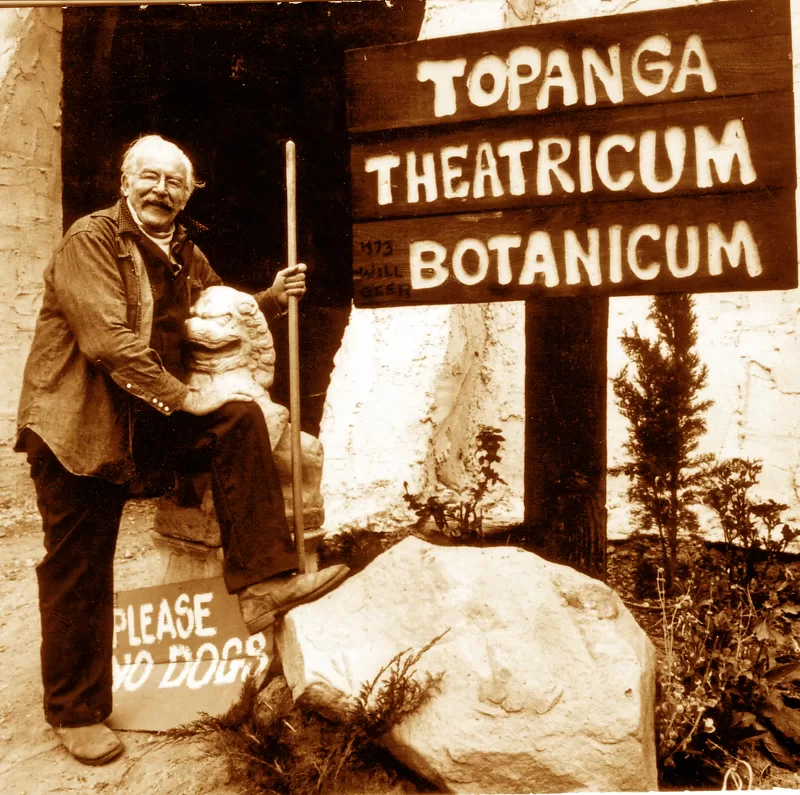
The success of the show enabled Geer and his family to expand their previously informal theater into the renamed Will Geer’s Theatricum Botanicum (meaning garden theater) in 1973. The new theater, nestled into a natural canyon amphitheater, grew in leaps and bounds as audiences flocked to attend regular Shakespeare performances and folk concerts with the likes of Geer’s old friend Pete Seeger and Woody Guthrie’s son Arlo Guthrie.
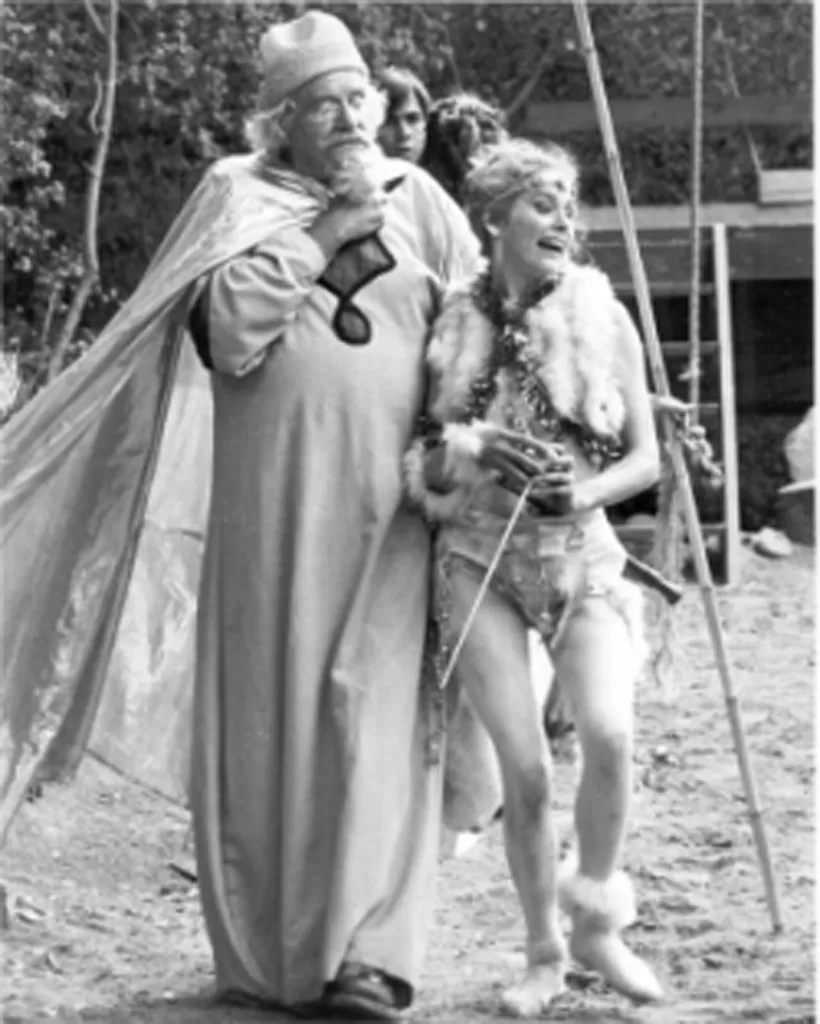
After dedicating almost his entire life to the arts and to speaking up on behalf of workers and the underprivileged, Geer passed away in April 1978 surrounded by his family. His ashes were later buried at the Theatricum Botanicum in his beloved Shakespeare Garden. After Geer’s death the family decided to become a professional repertory theater and include educational programs for local schools along with more musical events.
When asked what her fondest memories were from the Theatricum’s 50 years, Ellen Geer said it was the moments when the nature surrounding them interacted with the performance. “When we’re doing the Merchant of Venice, during the scene when Shylock is saying ‘I want to take a pound of his flesh,’ for some reason a dog escaped [its owners] and landed on the podium [on stage],” Geer recalled. “Everybody stopped, the audience stopped, we stopped. It was an extraordinary moment.”
Will Geer Theatricum Botanicum opens its 50th Anniversary Summer Season with two of William Shakespeare’s most beloved plays, Macbeth opening June 10, helmed by artistic director Ellen Geer and staring her daughter Willow Geer, and A Midsummer Night’s Dream opening the following night on June 11. To purchase tickets or to find more information about upcoming events, call (310) 455-3723 or visit theatricum.com
RESOURCES:
The Life, Music, and Thought of Woody Guthrie by John S. Partington
https://archive.org/details/lifemusicthought0000part/page/134/mode/2up



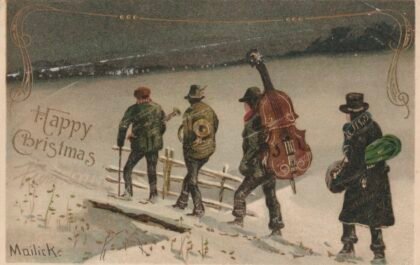

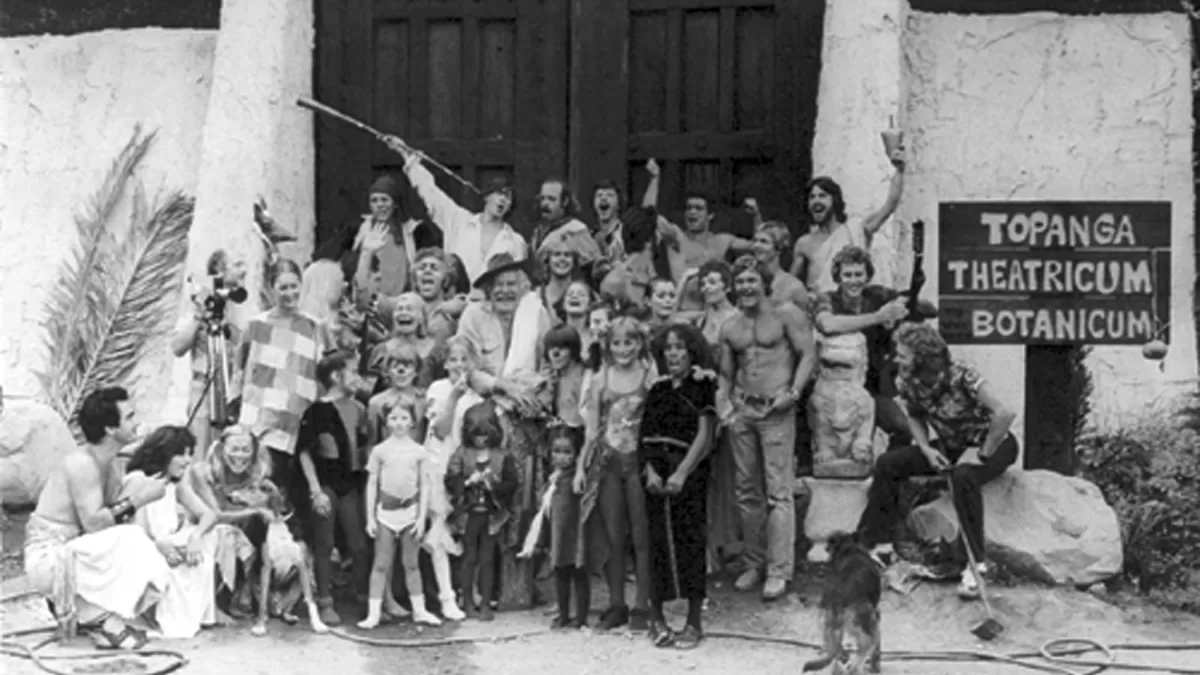
I SO enjoy your site! One of the few I try to see daily. Buying a couple of books you recommended too.